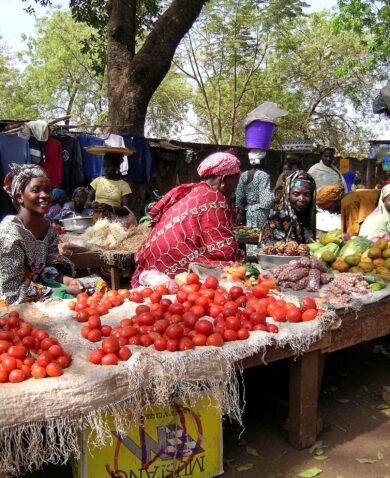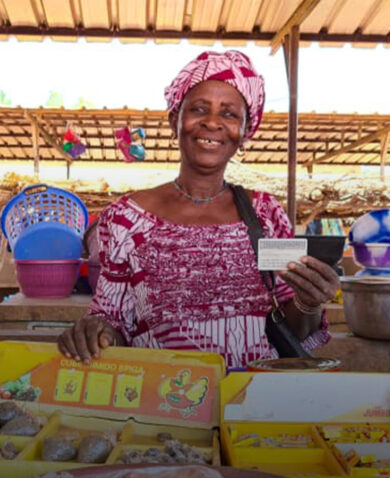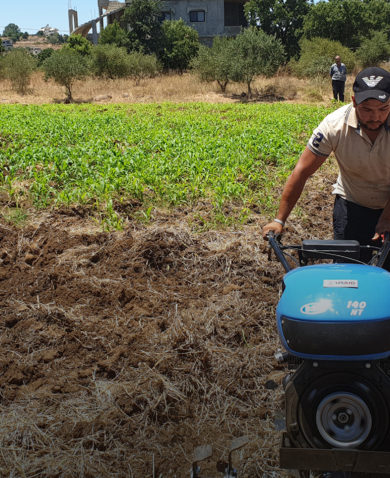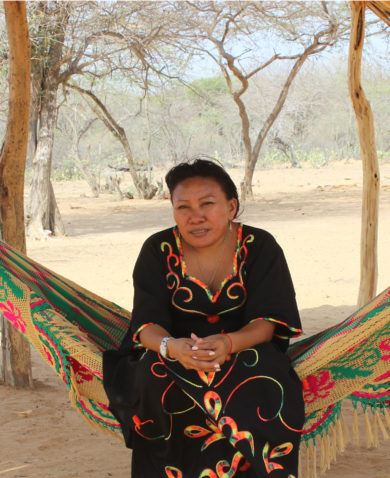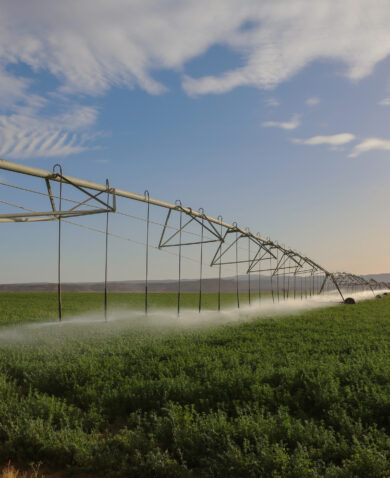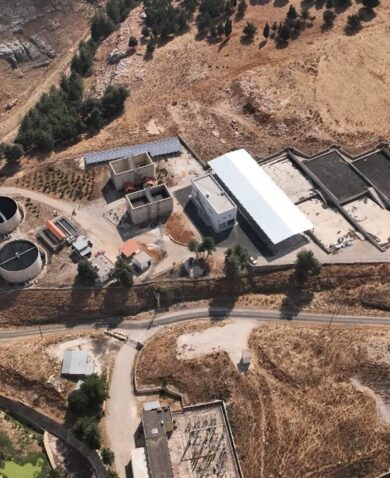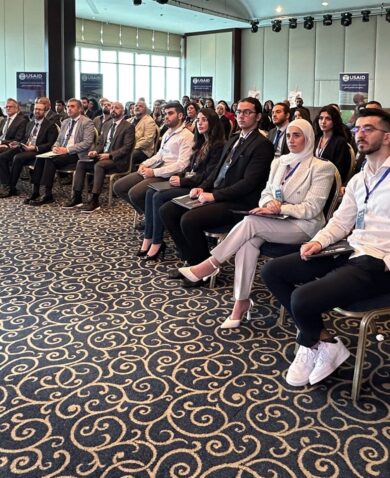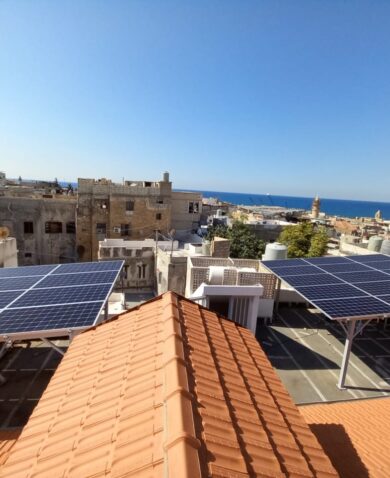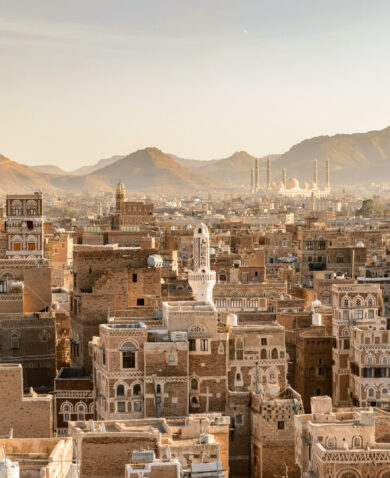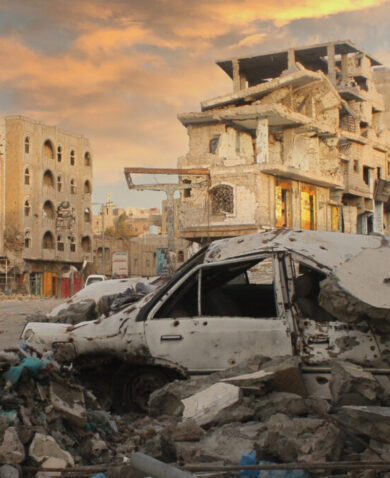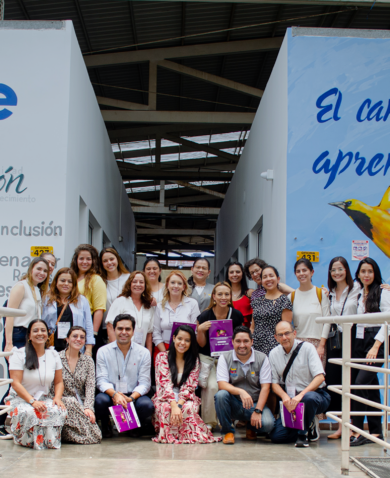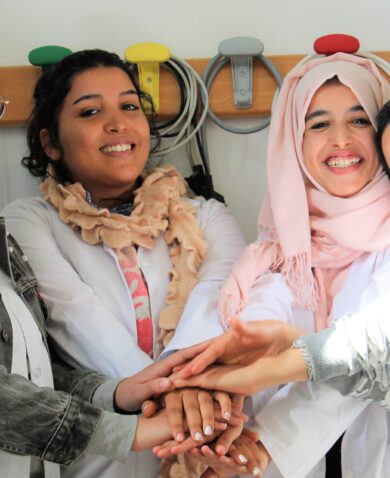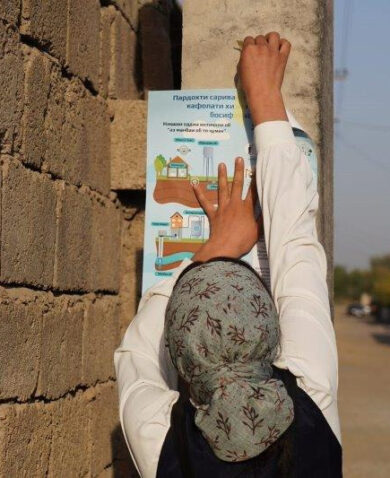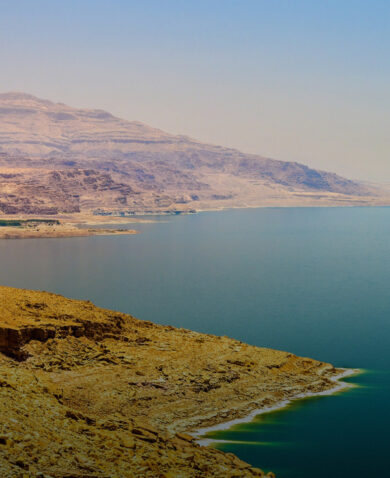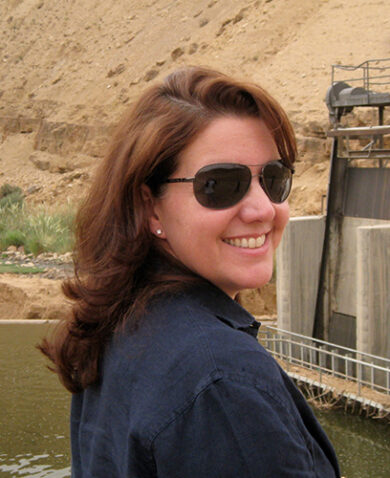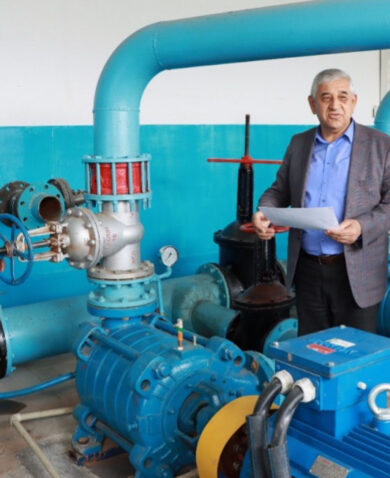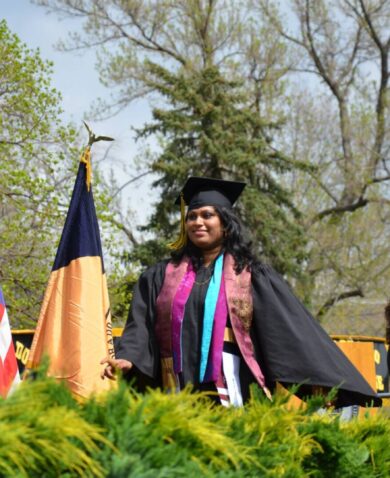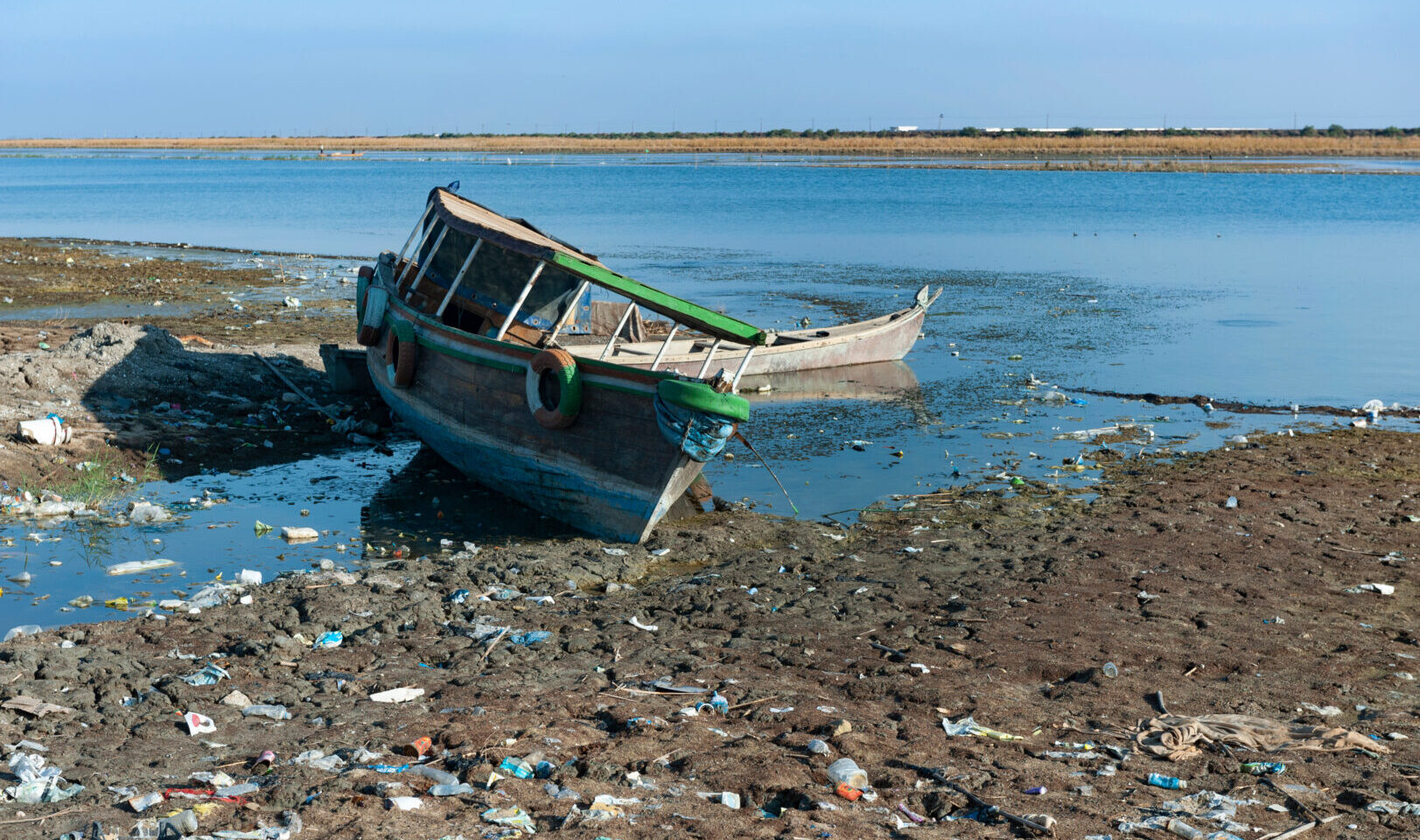
Leveraging Climate Action to Address Sources of Instability in Iraq
December 12, 2023 | 5 Minute ReadIraq is witnessing climate-driven displacement and conflict due to competition over resources in more water-scarce parts of the country.
Iraq’s diverse communities once formed a vibrant mosaic where each tile represented a distinct community connected by their shared heritage, culture, and rich history. In more recent history, this mosaic was shattered. Years of war and weak governance eroded trust between communities, leading to extreme fragmentation and division between the different religious and ethnic groups, which in turn led to more conflict. Even as the most recent conflict came to an end with the defeat of the Islamic State of Iraq and Syria, communities remain divided. Towns and cities once known for their diversity are empty or solely occupied by one specific group. On a national level, Iraqis limit their travel across the country out of fear, still recovering from a recent trauma. This has deepened divisions within the country and prevented social, economic, and political progress.
Divisions in Iraq are reflected in how communities have disjointedly sought to protect sources of national pride – the Tigris and Euphrates rivers. The two rivers flow from northern to southern Iraq, sustaining diverse communities and supplying 98% of the country’s water. While Iraq stands as the fifth-most vulnerable country to climate breakdown, the increased temperatures and decreased rainfall lead to drought in the rivers and water scarcity. As a result, Iraq is witnessing climate-driven displacement and conflict due to competition over resources in more water-scarce parts of the country, adding layers of complexity to the country’s development and stability. These conditions have been intensified by decades of conflict and mismanagement. Despite all the perceived differences among communities, everyone is impacted by climate change. Recognizing the existential challenge, youth groups have launched initiatives to raise their communities’ awareness on the importance of protecting Iraq’s water resources, the two rivers. However, youth efforts were highly localized and ineffective. In essence, civic initiatives to campaign and advocate for climate action were challenged by the fragmented nature of Iraqi society, which was also feeding conflict.
The Starting Point
The Iraq Community Resilience Initiative (ICRI), funded by the United States Agency for International Development’s Office of Transition Initiatives (USAID/OTI) and implemented by Chemonics International, contributes to building a stable and inclusive Iraq. Recognizing the significance of collective action among Iraq’s diverse communities, ICRI pinpointed climate action as a unifying force capable of bringing communities together. Since climate change has taken a toll on the Tigris and Euphrates, the preservation of the historic rivers provided a symbolic cause that could be used to collectively mobilize communities across the country.
As a first step, ICRI mapped grassroots organizations and youth groups nationwide working on climate action such as source water protection and awareness initiatives, with particular attention to those partners with a mission-oriented approach and commitment to inclusivity. Through grant award mechanisms, ICRI supported these organizations to expand their reach and scale their efforts nationally to clean the banks of the Tigris and Euphrates rivers and marshlands, and establish a social media outlet for climate content. Promoting local solutions brought together citizens, businesses, civil society, and government to raise Iraqi citizens’ awareness of climate change and its impact on the rivers and day-to-day life. By working with youth groups and local organizations to use social media, they were able to effectively elevate their voices to a national level.
Promoting Unity and Combatting Climate Change Through Community-Led Initiatives
The subsequent step required connecting these groups to foster collective action and magnify their impact. At first, partners hesitated to collaborate with one other because they perceived it as “sharing credit.” To combat this, ICRI involved partners in strategy discussions early-on to explain the program’s overall objectives and clarify mutual benefits stemming from collaboration, experience sharing, expanded networks, and broader exposure. The commitment to expanded networks was reinforced by the formation of communications channels convening organizations with similar interests, yet representing different communities in Iraq. ICRI leveraged this network to conduct a national cleanup campaign under a unifying hashtag #ForIraq to emphasize the shared benefits of these efforts. The movement mobilized around 700 youth, environmental and civil activists, and government representatives to work hand-in-hand to preserve the rivers and marshlands’ water from accumulated waste. This not only prevented an environmental hazard, but attracted media coverage highlighting collective action among Iraqis and portraying the climate change fueled drought as a common concern.
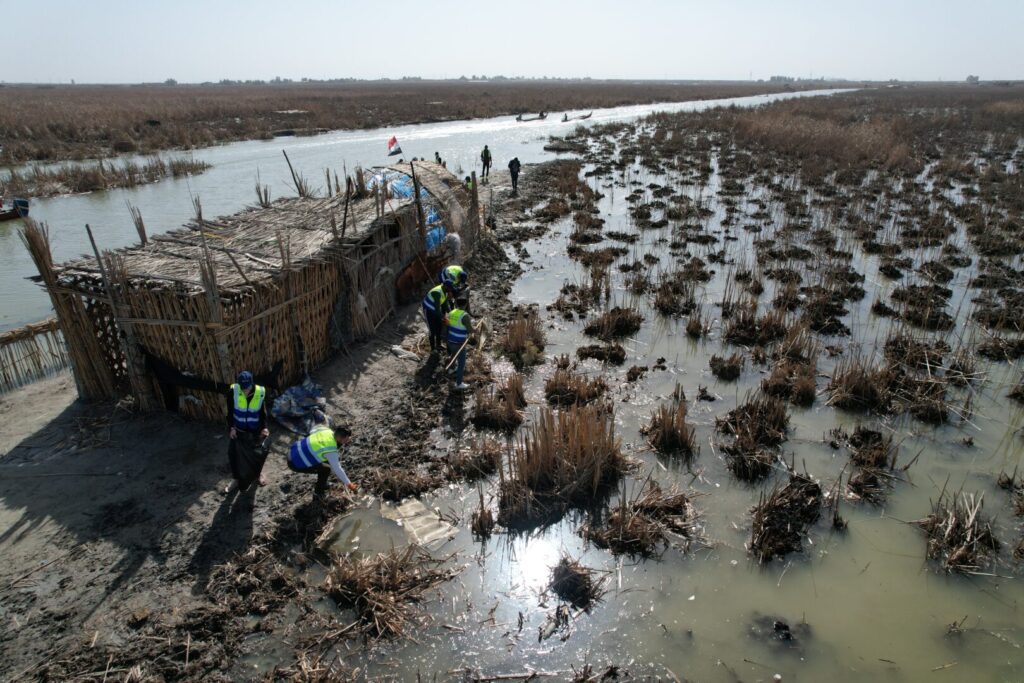
Deepening Inclusive Collaboration
Inclusive participation is crucial for fostering collective action among communities. ICRI prepared the ground for inclusive participation and representation in climate action initiatives and advocacy efforts targeting different audiences. For example, the program worked with a women-led media outlet to cover climate-related issues, emphasizing how climate change impacts women and girls across the country. The outlet is one of a kind in the Iraqi social media landscape and has contributed to increasing Iraqis’ engagement with climate-related content. Furthermore, ICRI highlighted the narratives of an often-marginalized community – the women of the marshes – through a series of impactful social media posts. The videos aimed to document women’s roles, including how they adapt to climate change, in sustaining life in the marshlands for generations to come.
Changing the Narrative
A series of climate-oriented initiatives, collectively headed by program partners, is intended to ensure sustainability of efforts. For instance, one program partner assumed the role of a critical resource hub for local organizations engaged in environmental and climate action initiatives. Another is representing Iraq and the people of the marshlands in the 2023 United Nations Climate Change Conference (COP28). Climate change narratives have transformed from a topic Iraqis were unaware or had little understanding of, to an emerging threat to the country’s stability. The new narrative showed Iraqis that despite their ethnoreligious differences, they share everyday experiences, including the impacts of climate change. This understanding paved the way for community members (including male and female farmers, business owners, artisans, and herders) to present a policy paper offering actionable insights for further engagement at an international donors conferenced in Baghdad. This approach built a bridge between communities, civil society organizations, and government authorities to collaborate on climate actions.
Stabilization practitioners often overlook weaving climate action into their efforts, viewing it as a long-term development challenge that is too complex to address. However, for communities struggling with the immediate impacts of climate change, it may serve as a source of stability. As a stabilization program, ICRI’s central mission was not focused on combating climate change in Iraq. However, the program leveraged its objective to strengthen inclusive community resilience through mobilizing communities towards collaborative action and empowering them to drive change from within. Locally led development and inclusivity were central to implementing Iraqi-owned climate action initiatives. Through this approach, ICRI effectively harnessed the collective strength of communities, channeling their shared experiences into meaningful avenues for progress and change.
Posts on the blog represent the views of the authors and do not necessarily represent the views of Chemonics.






